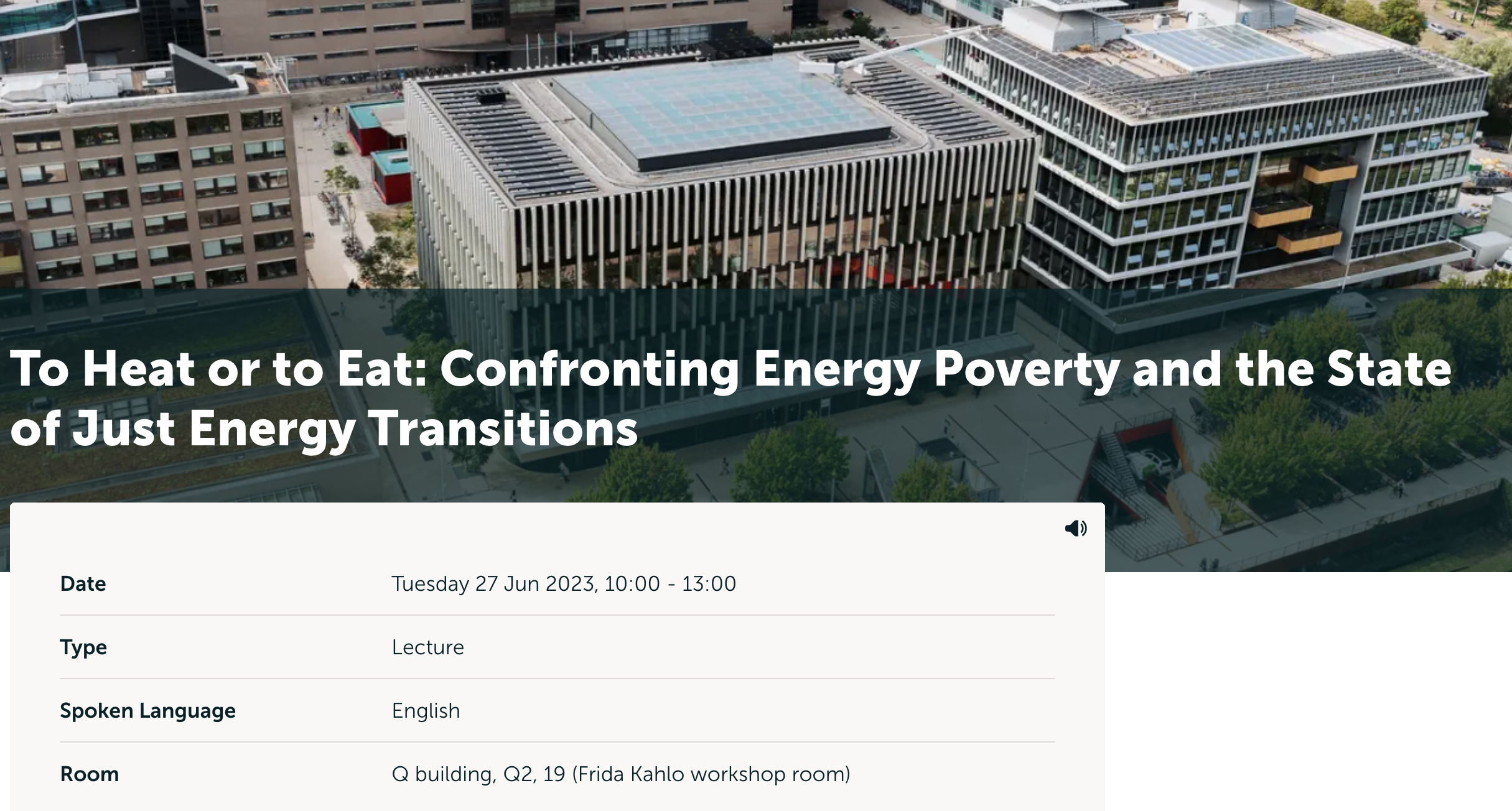Energy poverty is a consequence of our unjust energy transition. Last winter, when gas prices spiked 4x their ‘normal’ previous levels, those who had poorly insulated houses and were still using gas paid a premium. Many of these people in low quality housing stock, with poor insulation, however, bore the brunt of the high energy prices, yet another example of the truism “it is expensive to be poor.” In the energy transition, we must ensure that a market-driven approach is subtended by a government-investment approach, in order not to leave the most vulnerable in our community behind.
This past Tuesday, as part of a Dynamics of Inclusive Prosperity (DoIP) Initiative project which ran in the Design, Impact, and Transitions (DIT) platform, Luisa Zabel and I organized a workshop with top energy poverty academics at Erasmus University Rotterdam.
Luisa did an exemplary job! She took up the baton on this project after students in the 2021-22 pilot Masters in Sustainability Transitions (now called the Masters in Societal Transitions, or MST), which I directed, were asked by the Gemeente Rotterdam (Municipality) to investigate energy poverty in Rotterdam. The students who took the Practice of Sustainability Transitions course I coordinated with Abby Onencan and was taught by the DoIP team, decided on this topic, conducted interviews with stakeholders, and wrote up an excellent white paper and created a clear and illuminating power point presentation.
After the high spike in energy prices in late 2022, Luisa and I discussed picking up the other students’ study to perform a follow up, and turn it into a longitudinal study.
https://www.eur.nl/en/esphil/events/heat-or-eat-confronting-energy-poverty-and-state-just-energy-transitions-2023-06-27

As a follow up to this academic workshop, bringing together Dutch energy poverty researchers looking at the macro, meso, and micro-leves of energy poverty in the Netherlands, we also, together with Erasmus Verbindt, organized a Dutch-language stakeholders workshop ‘Samen sterker: hoe kunnen stakeholders in het Rotterdamse energiearmoedelandschap beter samenwerken?‘ in the Oude Westen, bringing together energy coaches, people experiencing energy poverty, the Rotterdam municipality, and low-income housing providers to discuss the needs of each group, and how we can work together to address pressing energy poverty needs.